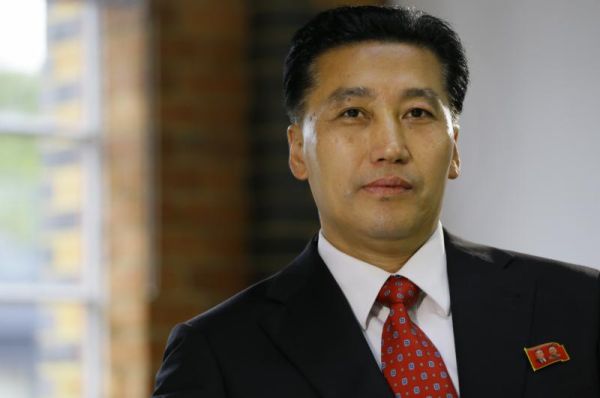-
Tips for becoming a good boxer - November 6, 2020
-
7 expert tips for making your hens night a memorable one - November 6, 2020
-
5 reasons to host your Christmas party on a cruise boat - November 6, 2020
-
What to do when you’re charged with a crime - November 6, 2020
-
Should you get one or multiple dogs? Here’s all you need to know - November 3, 2020
-
A Guide: How to Build Your Very Own Magic Mirror - February 14, 2019
-
Our Top Inspirational Baseball Stars - November 24, 2018
-
Five Tech Tools That Will Help You Turn Your Blog into a Business - November 24, 2018
-
How to Indulge on Vacation without Expanding Your Waist - November 9, 2018
-
5 Strategies for Businesses to Appeal to Today’s Increasingly Mobile-Crazed Customers - November 9, 2018
US, South Korea Defense Chiefs Warn N. Korea Over Provocations
Later Sunday Carter was to attend a US-South Korea security meeting in Seoul.
Advertisement
While approving the implementation guidance for the allied forces’ plans to destroy North Korean missile, nuclear, chemical and biological weapons, the two sides also made a decision to incorporate the operational concept into the full-fledged Operation Plan (OPLAN) 5015.
Wartime powers were to have shifted to a South Korean commander next month, but a year ago, the USA and Seoul agreed to delay the handover, citing North Korea’s growing nuclear threat.
“The nuclear dimension of the North Korean threat has arguably been important in influencing the decision to delay”, said Scott Snyder, the senior fellow for Korea studies at the Council on Foreign Relations.
Also participating in the Seoul talks were the new chairman of the U.S. Joint Chiefs of Staff, Marine Gen. Joseph Dunford, and the commander of U.S. Pacific Command, Adm. Harry Harris.
South Korea and the United States agreed to open a new high-level group to increase their collaboration in the defense technology sector, but this does not mean reversing the U.S.’ previous decision to deny key fighter jet technologies for South Korea, according to the results of the allies’ annual defense ministerial meeting on Monday.
Carter called North Korea an “up-close, risky and continuing threat”. North and South Korea remain technically at war since the 1950-53 Korean War was ended only by a truce.
At a news conference in Seoul, Carter said that would happen after South Korea becomes more capable of countering the North’s artillery force and after it improves its command and control of military forces and its intelligence capabilities.
“The South Korean authority’s visit to the United States was a betrayal of the country to appease the United States and a panhandling gesture that draws conflict to a unitary people”, stated Uriminzokkiri.
“If we look at global trends in terms of national security, many countries in the world conduct self-defence in the form of cooperation with regional and local partners”, Han said when asked why South Korea despite its enormous economic and political clout still wasn’t ready to take control of its own military.
In a widely expected move, the defense chiefs signed an agreement that defines conditions for a transfer of control over the South Korean military from the United States to Seoul in time of war.
Advertisement
North Korea on Monday gave a fresh push to its strategy of promoting renewable energies and reducing its costly reliance on imported oil, unveiling the country’s first solar-powered bus in Nampo, a city around 40 kilometers (25 miles) southwest of Pyongyang. The two nations agreed in principle to this “conditions-based” approach past year.





























